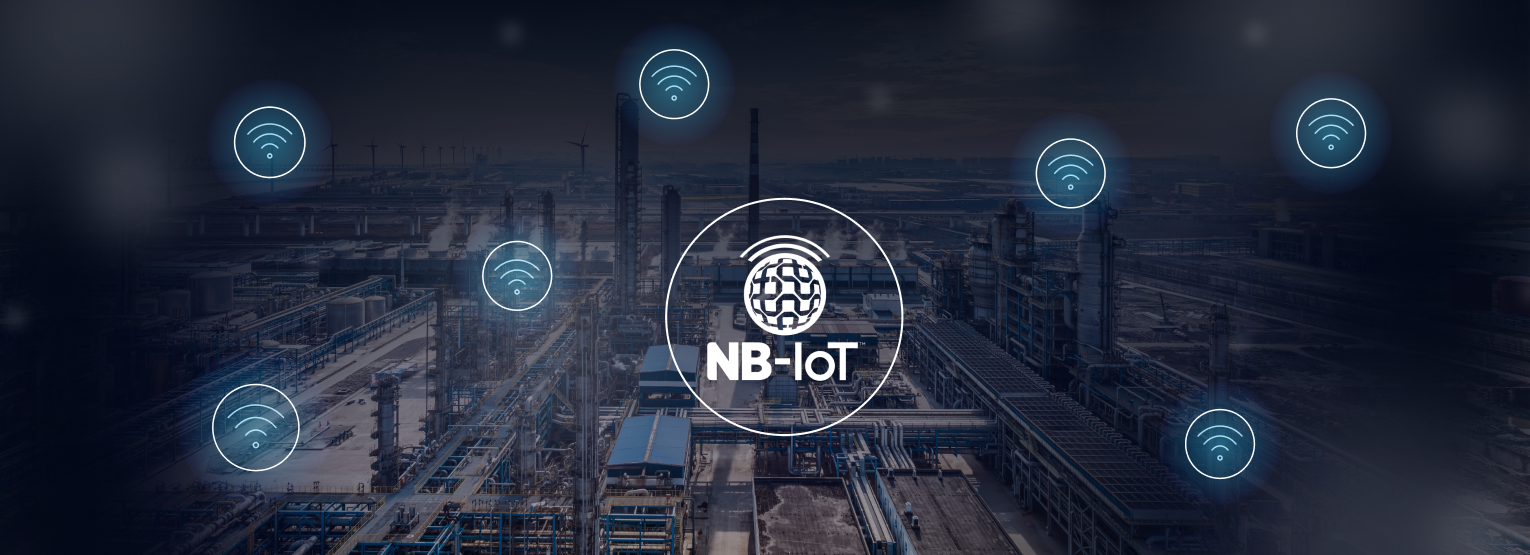Smart City - Blog - Resource Monitoring in the Oil and Gas Industry Using NB-IoT: Features and Prospects
06.06.2025
 25
25

Resource Monitoring in the Oil and Gas Industry Using NB-IoT: Features and Prospects

Digital transformation is reaching more and more industries, and the oil and gas sector is no exception. Efficient resource accounting, data transparency, remote monitoring, and quick response to changes are key objectives now being solved with the help of the Internet of Things (IoT).
One of the most promising technologies in this field is NB-IoT (Narrowband Internet of Things) — an energy-efficient and reliable platform for remote data collection, even under the most challenging conditions. In this article, we’ll look at the use of NB-IoT for resource management in the oil and gas sector, and why it matters to developers, utility providers, and municipalities.
NB-IoT was designed specifically for devices that handle small volumes of data but require stable connectivity and energy efficiency. Industrial NB-IoT sensors, radio modules, and smart meters can operate reliably in environments where traditional cellular communication is unavailable — for example, in remote oil wells, underground installations, or underwater facilities.
This technology enables direct data transmission to cloud platforms or SCADA systems, minimizing human involvement and reducing operational costs. And thanks to ultra-low power consumption, devices can run on a single battery for up to 10 years — a critical advantage for hard-to-reach installations. Unlike GSM modems that require regular maintenance, NB-IoT oil and gas monitoring ensures stable, long-term performance.
Advantages to industry don’t simply revolve around NB-IoT connectivity in remote areas however. Accurate, real-time data collection is essential for monitoring oil, gas, and water in transportation and storage systems, and an NB-IoT sensor network delivers exactly that.
Devices record pressure, volume, temperature, leakage, and other parameters, instantly transmitting the data to a central system. Leak detection via IoT is especially relevant for municipalities and management companies seeking to minimize losses and precisely calculate consumption.
As has been seen when smart metering oil and gas infrastructure, human error is eliminated, data accuracy improved, and personnel workflows streamlined. Additionally, NB-IoT implementation allows for consumption forecasting, asset efficiency analysis, and proactive maintenance planning.
These features are particularly important in large-scale infrastructure projects where downtime can be extremely costly.
Modern NB-IoT devices can be easily integrated into existing infrastructure, making the transition to new technologies more cost-effective. Support for open protocols, compatibility with automation systems, and flexible configuration options allow for quick deployment of metering systems at any scale — from a single facility to an entire utility network.
For developers and housing associations, low-power wide-area IoT means the ability to build smart homes and smart districts with full control over resource consumption. Installing NB-IoT meters for water and gas in residential buildings not only ensures accurate metering, but also enables real-time detection of unauthorized connections, leaks, and system malfunctions.
Deploying NB-IoT solutions requires no costly maintenance and can significantly lower operational expenditures. There is no need for regular technician visits to collect readings or service the equipment. The number of emergency situations also decreases thanks to timely issue detection and greater transparency across all systems.
From a resource-saving standpoint — both human and energy-related — NB-IoT delivers measurable results within the first few months of operation. For utility providers, this means improved profitability and service quality; for end-users — more transparent and fair billing.
Each year, NB-IoT gains more traction and support from telecom operators and hardware manufacturers. The solution ecosystem is growing, with new sensors, controllers, and meters enabling even broader applications in the oil and gas industry.
In the near future, we can expect NB-IoT to integrate with AI-based systems, offering not just data collection, but also real-time analysis, anomaly detection, and failure prediction. This paves the way for fully autonomous facilities managed by intelligent control systems.
NB-IoT coverage in harsh environments has already proven its effectiveness in the oil and gas sector, smart monitoring oil wells to provide accurate, stable, and cost-efficient resource accounting. It opens new opportunities for developers, municipal utilities, and management companies seeking to digitalize and optimize their own infrastructure.
From enabling automation in oil extraction to scalable telemetry systems, for those ready to invest in a sustainable and smart future, secure NB-IoT transmission offers a reliable and forward-looking technology platform.
Stay on top of the latest industry news
Thank you, we have received your message. Our manager will contact you shortly.

Our experts are always happy to help and promptly answer your questions. Please fill out the form to discuss your project and develop a tailored action plan.
Thank you, we have received your message. Our manager will contact you shortly.
Thank you, we have accepted your request. In the near future the responsible manager will contact you and clarify the details of the order.
Our experts are always happy to help and promptly answer your questions. Please fill out the form to discuss your project and develop a tailored action plan.
Thank you, we have received your message. Our manager will contact you shortly.